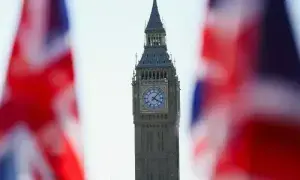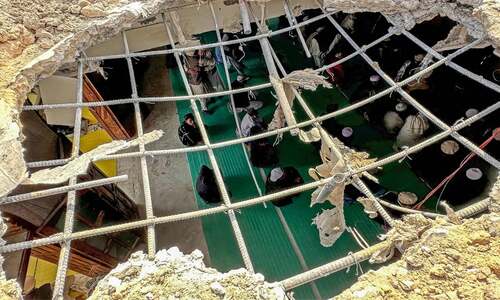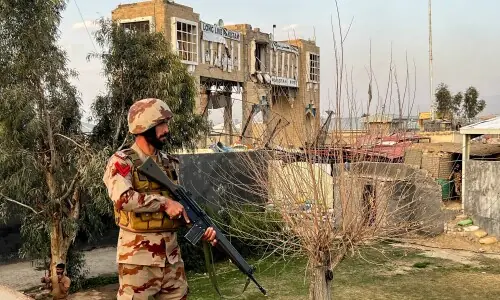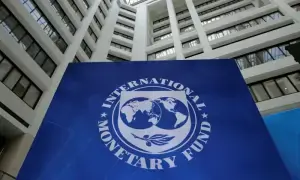The Afghan Taliban formally codified a long set of rules governing morality this week, ranging from requiring women to cover their faces and men to grow beards to banning car drivers from playing music, the Justice Ministry said.
The rules, promoted as in line with Islamic Sharia law and to be enforced by the morality ministry, were based on a decree by the Taliban’s supreme spiritual leader in 2022 and were now officially published as law, a Justice Ministry spokesman said.
The morality ministry, formally called the Ministry for the Prevention of Vice and Propagation of Virtue, has already enforced similar morality requirements and has detained thousands of people for violations.
It was not immediately clear whether publication of the rules would lead to stronger enforcement.
The Taliban’s restrictions on women and freedom of expression have drawn sharp criticism from rights groups and many foreign governments since the former insurgents resumed control of Afghanistan in 2021.
“Day by day, they are trying to erase women from society,” said a 37-year-old housewife in Kabul.
“The silence of the international community regarding the actions of the Taliban is encouraging them to create new laws and restrictions every day,” added the woman, identified just by her first name, Halema.
Western capitals, led by Washington, have said the path to formal recognition of the Taliban is largely stalled until they reverse course on women’s rights and open high schools to girls.
The Taliban say they respect women’s rights in accordance with their interpretation of Islamic law and local customs and that they are internal matters that should be addressed locally.
The 35-article morality law was officially enacted and published on Wednesday after being ratified by Supreme Spiritual Leader Haibatullah Akhundzada, said Justice Ministry spokesperson Barakatullah Rasoli.
“According to this law, the Ministry [for Prevention of Vice and Propagation of Virtue] is obligated to promote good and forbid evil in accordance with Islamic Sharia,” the Justice Ministry said in a statement.
The requirements include women wearing attire that fully covers their bodies and faces and bars men from shaving their beards and skipping prayer and religious fasts.
Penalties for violations included “advice, warnings of divine punishment, verbal threats, confiscation of property, detention for one hour to three days in public jails, and any other punishment deemed appropriate”, the Justice Ministry added.
If such measures failed to correct an individual’s behaviour they would be referred to court for further action, it said.
“A lot of these rules were in place already but less formally and now they are being formalised I think this is a sign of what we’ve been seeing over the last three years which is a steady and gradual escalation of the crackdown,” said Heather Barr, Associate Director of Human Rights Watch’s Women’s Rights Division.
The laws also instruct drivers of vehicles not to transport women without a male guardian. They require the media to abide by Sharia law and ban the publication of images containing living beings.
Morality ministry officials have been monitoring Afghans throughout the country for alleged offences for the past three years.
The ministry said this week that in the past year, it had detained over 13,000 people, though it did not break down the alleged offences or gender of the detainees.
It said around half of the detentions were for 24 hours.
The Taliban suspended Afghanistan’s previous constitution when they took over in 2021 as foreign forces withdrew, and said they would rule the country according to Sharia law.
This week’s morality laws were the seventh set of codified laws, according to the Justice Ministry, with others relating to property, financial services and the prevention of begging.
UAE accepts Taliban government ambassador in rare move
Meanwhile, officials said the United Arab Emirates has accepted the credentials of an ambassador from the Taliban government, becoming just the second country after China to do so.
The oil-rich Gulf state said it was committed to “building bridges” to help the Afghan people after the Kabul foreign ministry announced on social media that new ambassador Mawlawi Badruddin Haqqani had been received in a ceremony in Abu Dhabi.
The UAE’s growing ties with the Taliban government include the management of Afghan airports by Emirati firm GAAC following the withdrawal of US forces and the Taliban’s return to power in 2021.
The ambassador’s acceptance will be seen as a victory by the Taliban authorities, which remain largely isolated internationally and unrecognised by the United Nations, partly for denying girls access to secondary education.
“The world recognises the challenges faced by Afghanistan over the past few years,” an Emirati official said in a statement sent to AFP late on Thursday.
“The decision to accept the credentials of the ambassador of Afghanistan reaffirms our determination to contribute to building bridges to help the people of Afghanistan.”
The UAE plans to provide “humanitarian assistance through development and reconstruction projects” and support efforts towards “regional de-escalation and stability”, the statement said.
The UAE was one of just three countries along with Pakistan and Saudi Arabia to recognise the previous Taliban government, which was toppled by the US-led invasion in 2001.
It is one of a handful of nations to host a diplomatic presence by the Taliban, including Iran, Pakistan, Uzbekistan, Turkmenistan and Kazakhstan.
Nicaragua appointed a non-resident ambassador to Afghanistan in June.
Last week, in further signs of UAE-Taliban relations, President Sheikh Mohamed bin Zayed Al Nahyan visited Afghanistan’s prime minister as he received treatment in an Emirati hospital.
In June, the UAE president hosted Afghan Interior Minister Sirajuddin Haqqani, who is wanted by US authorities with a $10 million reward for information leading to his arrest.
































